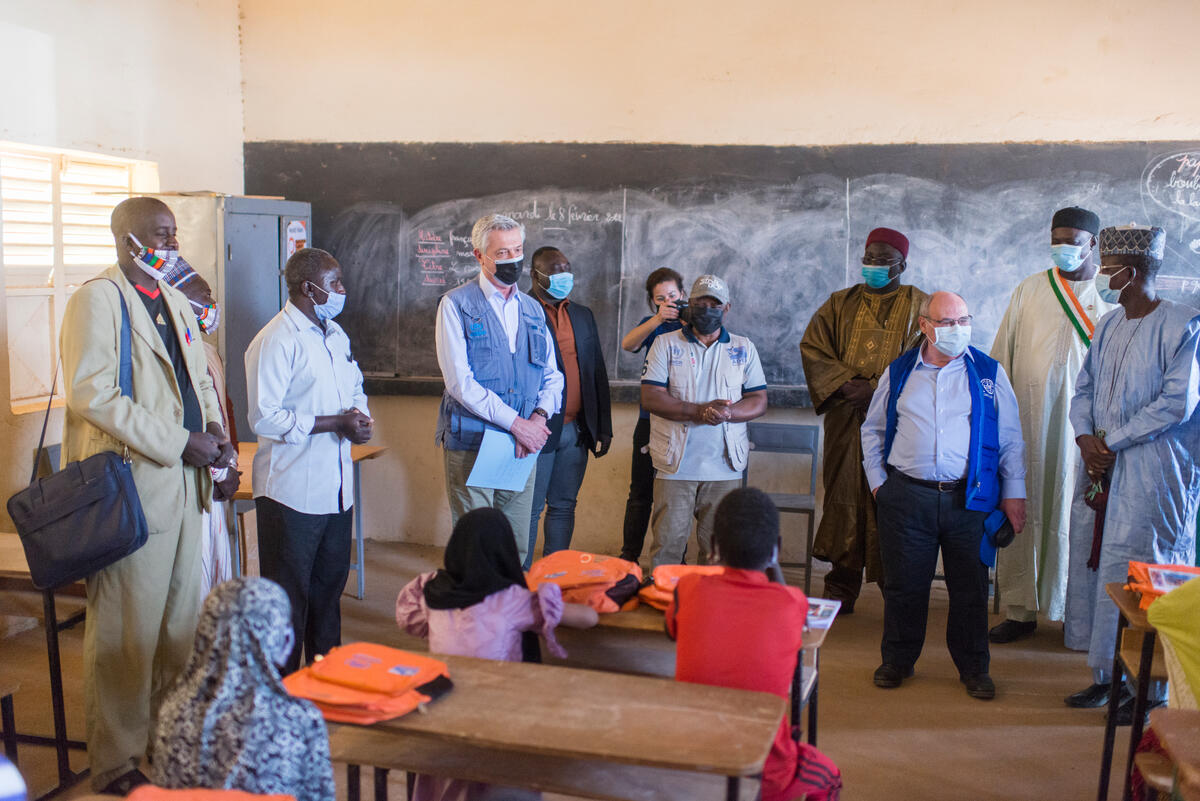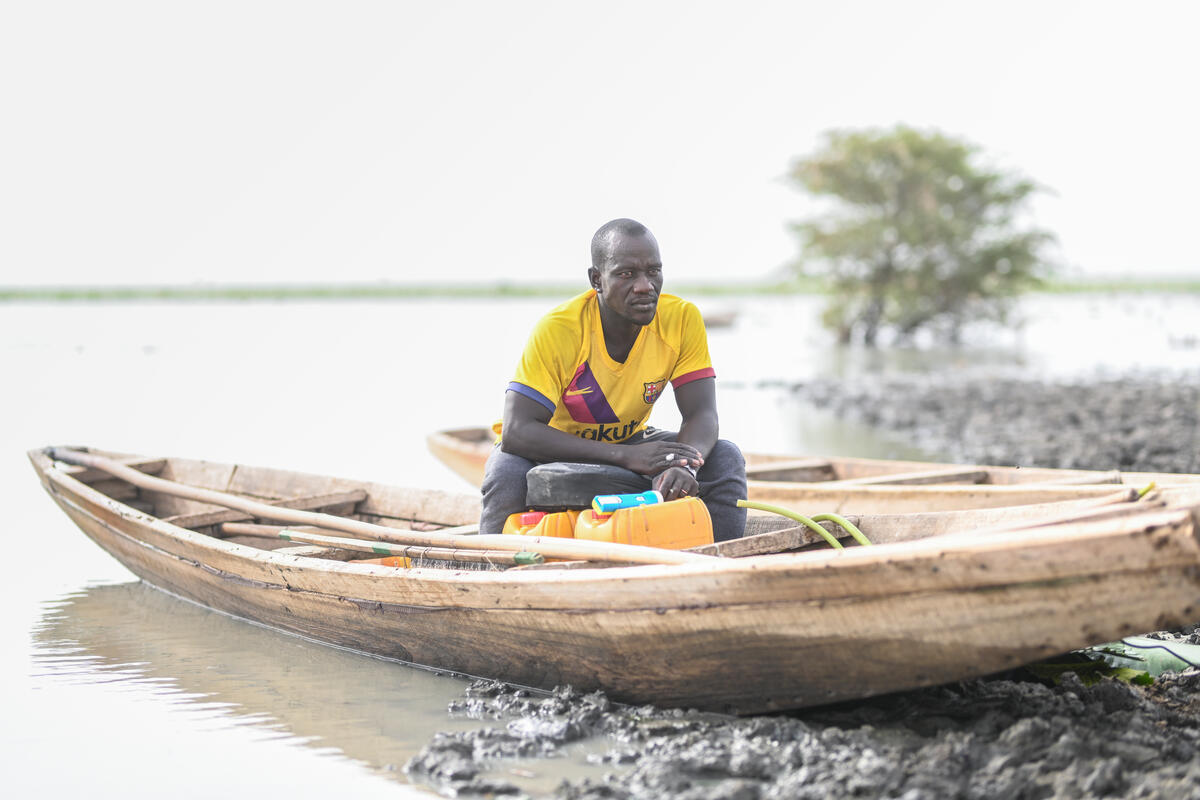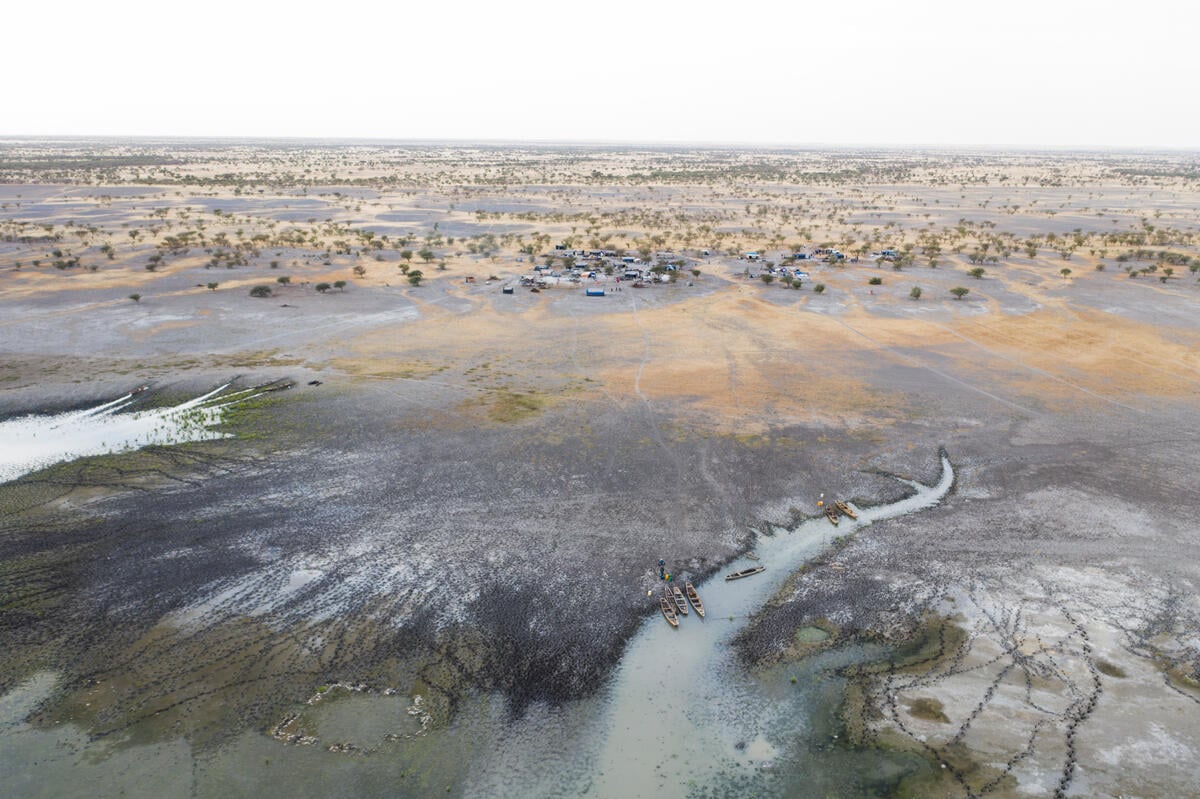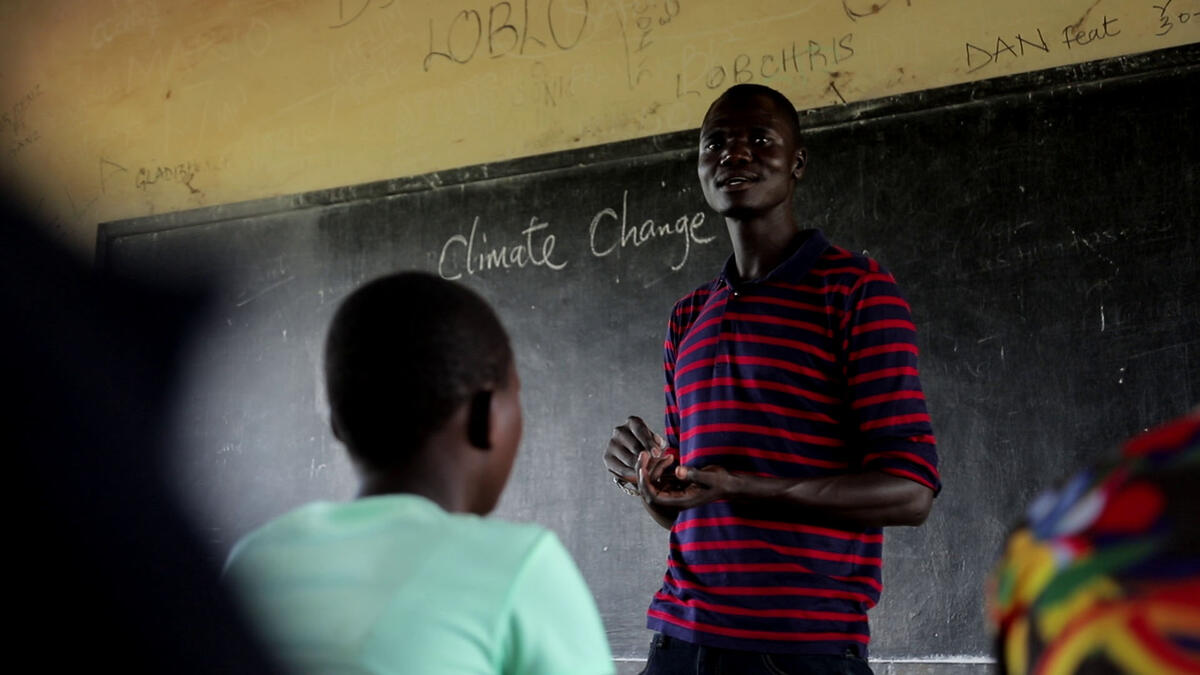Refugees around the globe to mark World Environment Day
Refugees around the globe to mark World Environment Day

GENEVA, June 5 (UNHCR) - From Kashmir to the Congo, the UNHCR will help internally displaced persons and refugees celebrate World Environment Day on June 5.
"World Environment Day is an opportunity to draw attention to the dependence of refugees and the internally displaced on natural resources and to urge everyone to be considerate in the use and protection of these resources," said Arnauld Akodjenou, head of UNHCR's Division of Operational Services.
This year's theme is Desert and Desertification and the slogan is "Don't Desert Drylands!" But in order for the theme to be more applicable and relevant to most refugee situations, UNHCR has chosen to use the slogan "Combat Land Degradation in Refugee-Hosting Areas."
Akodjenou said this "reminds us that we are all responsible for ensuring the sustainable use of available natural resources and caring for the environment in refugee operations. Some refugees are hosted in ecologically fragile environments and live in the economic and social margins. It is therefore essential that we do not neglect them or the fragile habitat on which they depend."
The message of environmental care will be banged home during celebrations slated on and around June 5 in harsh environments where refugees and internally displaced persons are housed, including earthquake-hit areas of Kashmir and large swathes of the African heartland.
UNHCR has helped to prepare celebrations on June 5 at seven residual camps in Pakistan-controlled Kashmir, with a special event to be held at the Jalalabad Camp in Muzaffarabad. Activities will include tree-planting, photo exhibitions and awareness training about the environment on which the survivors of last October's deadly Kashmir earthquake are so dependent.
A raft of commemorative events are also planned for refugees across Africa. These include educational events, lessons on hygiene, films, song and dance, sports, demonstrations of alternative fuel sources, promotion of horticulture and tree-planting in countries such as Kenya, Sudan, Tanzania, Zambia and Rwanda.
In the northern Angolan town of M'Banza Congo, which hosts the Kiowa reception centre, the provincial agriculture department is organising World Environment Day events. A radio campaign on environmental care has started airing, while a town clean-up was due on June 3. Officials are scheduled to hand out seedlings to refugees at Kiowa and plant trees at the centre on the day itself.
World Environment Day has a particular resonance for the world's refugees, the majority of whom are found in marginal regions of poor, developing countries. Here, the "footprint" or environmental impact of their activities is often of great magnitude and long duration. Collecting shelter materials and firewood can cause serious deforestation and soil erosion. Natural resources are threatened by the sudden arrival of large numbers of people. In extreme cases, this can happen almost overnight.
Although environmental concerns have taken a back seat to humanitarian needs at such times of crises, the close links between the well-being of human populations and a healthy environment are being increasingly recognised.
The UNHCR's Akodjenou said the refugee agency could not afford to ignore the environmental implications of its work. "Environmental concerns come to the fore in refugee operations for many reasons, the most important being that they can threaten the institution of asylum. This is a situation that UNHCR seeks to avoid at all costs."
He said a lack of effective environmental management could also undermine ecosystem integrity and functioning of ecological services, such as the continued flow of safe drinking water; threaten livelihoods and welfare, through excessive use of local resources; jeopardize good relations with host communities as a result of conflicts over natural resources such as fuelwood, building materials, grazing and farming land.
UNHCR environmental activities are designed to prevent and to mitigate the negative effects of refugee camps on the environment as well as, when necessary, to rehabilitate it in order to ensure the welfare of refugees and local populations.
"Let us use this occasion to enhance awareness of refugees and the importance of protecting the environment. We all breathe the same air, drink the same water, and live in the same world," Akodjenou said.









